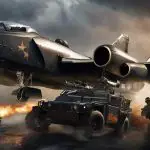The fusion of technology and entertainment has birthed an immersive universe of virtual play, known as gaming. Navigating this vibrant cosmos is not just about mastering the controls, it’s also about comprehending its distinct language – the Gamer Talk. This unique parlance is the glue that bonds millions of gamers worldwide, cultivated and enriched with every showdown in the digital arena. Embedded within this language are expressions of camaraderie, elements of strategy, and fascinating commentary on internet culture. Yet, for some, it can also harbor misunderstandings and spark controversies. Whether you’re a puzzled parent trying to connect with a gaming-obsessed child or a curious onlooker, having a basic understanding of gamer slang is a powerful arsenal to bridge the gap and comprehend this expanding digital culture.
Understanding Gamer Lingo
Understanding Gamer Slang
Gamer slang forms an integral part of the social fabric that ties millions of gamers around the globe in an unbroken thread of shared experience and understanding. It is a unique language that, like any other, continues to evolve, serving a dual role as both a communication medium and a marker of identity and community recognition. It not just aids in-game communication but also promotes a sense of camaraderie and shared culture among gamers, leading to communities rooted around these shared linguistic patterns.
The Evolution of Gamer Slang
At its most primitive, Gamer slang originated in multiplayer online games, where brevity was a key component in securing a competitive edge. Simple abbreviations and acronyms began taking shape to relay complex game-related information quickly and efficiently. Specific game lore, titles, and jargon influenced the language with new words and phrases introduced as technological advancements offered new gameplay elements and dynamics. The rapid pace of gaming evolution continuously fuels the development of its specialized language.
The unique language we call gamer slang today is the product of countless transformations and adaptations over the years. The language embraced universally common terms that migrated across different games, as well as developed game-specific vernacular that is tactics focused. There has also been a significant influence of memes and internet culture, which has injected a healthy dose of humor and creativity into this conversational vernacular.
Purpose of Gamer Slang
Gamer slang is essential for effective communication during gameplay. With games becoming increasingly complex and teamwork oriented, it is crucial to relay information about game situations, strategy, and tactics to other players as quickly as possible. There are words and phrases for specific events, roles, objects, actions, and outcomes. Gamer slang increases the efficiency and immediacy of these communications, helping players cooperate, strategize and react to evolving game situations.
Beyond in-game communication, gamer slang also helps to strengthen the social bonds between players. Shared language denotes social identity, and in the gaming world, this is no different. The ability to freely use and understand gamer slang serves as a badge of honor and a marker of belonging. Being conversant in gamer slang is not just about understanding game strategy or mechanics, but also signifies one’s immersion and participation in the wider gaming community.
An Introduction to Gamer Slang
The birth of gamer lingo finds inspiration from not only specific video games but also larger online culture, memes, and various internet communities. As an example, the term ‘nerf’ is common in the gaming world to depict a reduction in power or effectiveness of a game character or item, drawing its origin from the popular plastic toy brand Nerf due to its harmless nature. Likewise, the abbreviation ‘gg’, short for good game, is a common term used to sign-off after a multiplayer game.
This unique language often employs abbreviations, acronyms and occasionally, phonetic spelling alterations, as seen in the term ‘pwned’, which is an irregular spelling of ‘owned’. Gamer language is not just quirky but constantly evolving and often reformulates daily phrases or references from pop culture to bestow new definitions within the gaming context.

Most Common Expressions in Gaming
Decoding the Language of Gamers
Delving into a new pastime is always an intriguing experience, more so when it unfolds its own exclusive jargon. This is particularly evident in the realm of gaming. Players commonly communicate using an array of unique terms, phrases, and abbreviations during games and in-between. To uninitiated players, gamer jargon may seem like an entirely different language. Here, we provide an outline of some of the most frequently encountered terms you’re likely to stumble upon in your gaming explorations.
Popular Gaming Phrases and Their Meanings
“GG” is an abbreviation for “good game.” It’s used at the end of a game to express sportsmanship, similar to how players may shake hands after a physical sporting event. “OP” stands for “overpowered.” This term is used when a character, weapon, or strategy is considered too strong and disrupts the game’s balance. “Nerf” is a term that means to reduce something’s power or effectiveness – this usually refers to a game developer reducing the abilities of a character or item that players feel is OP. “Noob,” meanwhile, is a not-so-flattering term for a new and inexperienced player.
“Camping” is another interesting term. It’s used when a player stays in one area of a game, often a strategic spot, rather than moving around. This term can be somewhat negative, as camping can be seen as a less-skilled strategy. “PvP” and “PvE” mean “player versus player” and “player versus environment,” respectively. These terms are used to distinguish different game modes or game aspects where players either face each other or work together against game-controlled enemies.
“Achievement” is a word used to describe an in-game award for completing certain tasks. For games with immersive stories, the term “lore” refers to the game’s background story and world.
Genre-Specific Jargon
Different gaming genres also have specific jargon. In massively multiplayer online games (MMOs), for example, a “raid” is a mission that requires a large group of players to work together. The phrase “level up” in RPG (Role Playing Games) refers to the act of improving a character’s skills or abilities. Survival shooters often use the term “Battle Royale,” in which a large number of players are pitted against each other in a progressively shrinking play area – the last player or team standing is the winner.
Similarly, in strategy games, “RTS” stands for Real-Time Strategy, a sub-genre where game events progress in real-time, compared to turn-based games. “MOBA”, meaning Multiplayer Online Battle Arena, is another sub-genre popularized by games like Dota and League of Legends; here, teams of players battle each other with the aim of destroying the enemy’s main structure.
Mastering the Gamer Lingo
Keep in mind that while this guide will cover many popular terms, there are countless more phrases, abbreviations, and expressions used across different games and gaming communities. A noteworthy part of venturing into a new game involves unraveling the unique language native to its world and its players. Just like with any language, frequent practice, ample time, and the readiness to ask when in doubt are key to mastering gamer slang. The quirks and charm of gaming language add to the enjoyment and culture of your gaming experience, enhancing the vibrant worlds and communities you enter. So, from a newbie to a seasoned player wanting to learn a new dialect, embracing gamer talk is a rewarding and integral part of your gaming voyage.

Impact of Gamer Slang on Internet Culture
The Impact of Gamer Talk on Internet Culture
You’ll find that the influence of gamer jargon on internet culture at large has experienced a significant surge in recent times. It has seeped into popular slang, catchphrases, memes, and many of the instantly recognizable expressions we see online. The imprint of gaming language is robust and widespread, affecting not only online dialogues but also extending into real-world conversations, particularly among the younger demographic.
Proliferation of Gamer Talk
The correlation between the video gaming community and internet culture has resulted in the widespread use of gamer slang. Phrases like ‘GG’ for ‘good game’, ‘noob’ for ‘newbie’ or a rookie, ‘PWN’ meaning to dominate, or ‘camping’ indicating the act of hiding to ambush other players were once exclusive to the gaming realm. Nowadays, these phrases have expanded beyond gaming forums and chat rooms, bleeding into digital spaces like social media platforms, general internet forums, text messages, and even casual conversations among youth.
Gamer Slang in Memes and Catchphrases
Memes, these visual commentaries on society that combine images with catchy phrases, carry a significant number of gamer jargon. They draw millions of shares and likes across social media platforms. For example, the gamer phrase “Press F to Pay Respects” originated from the game “Call of Duty: Advanced Warfare”, but found itself as a popular meme used to signify respect for another’s loss or failure and commonly seen across social media and Reddit threads. These memes make profound use of gamer slang, fostering its proliferation and integration into broader internet culture.
The Lingual Transformation in Traditional Spaces
In traditional spaces, the impact of these gamer-originated terms is intensely recognizable. Not just in verbal communications, the lexicon of gamer speech has infiltrated the idiomatic usage in some schoolyards, college communities, and friendly conversations. It has created a unique lingual coexistence among young people in these spaces. Whether it’s a casual chat about the latest games or a serious discussion about everyday events, the influence of gamer talk is palpably felt.
Gamer Talk: The Linguistic Unifier of Digital Generations
Gamer talk, commonly referred to as gamer slang, is more than just a colloquial language – it is an emblem of today’s digital involvement. Its primary purpose is to foster an understanding connection between users, creating a sense of community and camaraderie. Gamer talk is not merely a mode of communication; it is a tool to stand out and build identity in a vast digital world. As it progressively infiltrates internet culture and day-to-day conversation, especially among the younger generation, it is evident that the influence of gamer slang extends far beyond the virtual borders of the games themselves.

Controversies and Misunderstandings Surrounding Gamer Language
Diving Deep into the Unique Vernacular of Video Gaming
Gamer talk, often recognized as gamer slang, forms a subset of language constructed over years of interactive multi-player gaming and game-chat traditions. It includes diverse terminologies, some specific to individual games, certain gaming communities, or general gaming scenarios. While some expressions like “gg” for ‘good game’ and “noob” indicating a novice or relatively inexperienced gamer are universally understood, there are numerous terminologies that remain exclusive and puzzling for those not deeply engrossed in the gamer-sphere.
Misunderstanding and Controversy
This niche language can be a source of misunderstanding and controversy, often leading to exclusion of newcomers from the community or the abuse of gamer slang. For instance, some experienced gamers may resort to “griefing” (deliberately irritating and harassing other gamers) and use language that is offensive, discriminatory, or constitutes bullying. This type of behavior, facilitated by the anonymity of online gaming, has resulted in numerous controversies.
Controversial Terms and Phrases
A number of terms and phrases within gamer talk have been subjects of controversy over the years. One such term is “Pwned,” slang for dominated or defeated heavily. It is often used in a derogatory sense to belittle losing opponents, leading some to question its usage. Another term, “camping” (an act of staying in one place in a game to gain an unfair advantage), is also contentious as it is viewed as a form of cheating.
Exclusion and Elitism
A common criticism of gaming communities is that the incumbent members often use gamer talk as a tool of exclusion or elitism. These insular communities can be largely unwelcoming to newcomers, and gamer slang can serve as a barrier to entry. The wealth of unfamiliar terminologies can make gaming seem impenetrable to beginners, leading to a feeling of ostracization.
Debates Over Usage
Debates over the use of gamer slang usually dwell on whether it is necessary and what its effects are. Advocates argue that it is a natural byproduct of any hobby or activity, from sports to music to cars. They claim that it is fundamental to community forming and offers a sense of belonging to an exclusive group.
Critics, however, say that it alienates newcomers, contributes to toxicity, and enables bullying. They argue for the need for more inclusive, safer gaming communities and believe that softening the usage of exclusive gamer talk is a way to achieve this.
Decoding the Language of Gamers
If you wish to understand and actively participate in the dynamic world of gaming, it is essential to familiarize yourself with unique gamer talk. This language, filled with specific slang and terms, can be instrumental in breaking down the communication barriers often faced by non-gamers, leading to a more inclusive gaming atmosphere.
Online resources are readily available to learn and stay updated about these unique game terminologies. It’s also noteworthy that both gaming communities and developers actively work towards moderating the misuse of this language, encouraging positivity and discouraging offensive use of terms. Certainly, understanding and effectively resolving the controversies and misunderstandings related to this unique language can have a direct contribution to the increasing popularity of gaming as a form of entertainment.

Decoding Gamer Language for Parents and Non-Gamers
Deciphering the Gamer Slang
Like any other social group, gamers have developed their own shorthand and colloquialisms known as gamer slang. Just as you would when learning a new language, it requires patience and enthusiasm to get a hang of it. Non-gamers, particularly parents, might initially find themselves out of their depth, but over time, most can attune their ears to understanding the language.
For instance, the term “GG” means “Good Game” – it is used as an acknowledgement of a good game at the end, showing respect and sportsmanship towards the opponent. The term “noob” is a slightly derogatory way of referring to a beginner or a less experienced player. And “RPG” is an acronym for Role-Playing Game, a type of game genre where a player is supposed to assume a role of a character in a fictional setup.
Resources to Decode Gamer Slang
One way for parents to familiarize themselves with the ever-evolving language of gaming is to engage in research. An array of websites and online communities provides detailed glossaries of gamer jargon. Websites like Urban Dictionary, although not solely dedicated to gaming slang, can be particularly useful. Be aware, however, that like any language, gamer slang is dynamic and evolving, so constant brushing up may be required.
Participating in Gaming Conversations
Parents and caregivers may engage with the young gamers in their lives by expressing an interest in the gaming world. Asking about the games they play, the strategies they use, or the characters they interact with can prompt conversations interspersed with gamer slang. This allows an opportunity to ask questions and seek translations, promoting an open understanding of the language.
Partaking in gaming sessions with the younger ones is another effective method. By sharing the gaming experience, non-gamers can familiarize themselves with the context in which gamer talk is used, thus understanding the language better. Moreover, these interactive experiences can provide a common ground to bond over.
Gamer Talk and Online Safety
Understanding gamer talk also allows a nuanced insight into the young gamer’s online interactions. It prepares parents and caregivers in recognizing potentially harmful situations— like cyberbullying, stalking, and aggressive behavior— concealed beneath the code of gamer language.
Embracing the Gamer Culture
Imbibing the video gaming culture and its language extends the dialogue with young gamers beyond a singular hobby. It demonstrates investment in their interests and respect towards their digital social circle.
Gamer slang, when properly understood, is more than just jargon. It is an entire social dialect, proof of the community-driven spirit of gamers worldwide. By learning and embracing this vibrant parlance, parents and non-gamers can bridge the digital divide, foster openness, and build stronger relationships with the young gamers in their lives.

Understanding Gamer Talk is akin to opening a window into the vast, vibrant world of gaming. It is not just about learning new terminology; it’s about empathetically engaging with a unique form of communication that captures the spirit of the game-space, with all its dynamics, conflicts and camaraderie. When non-gamers and parents comprehend this language, they’re not just deciphering words, but decoding an immersive cultural experience. So step into the shoes of gamers, empathize with their passion, and dive deep into their world through their language. It will not only equip non-gamers to engage with the gaming community but also serve as a key to connect, navigate and participate in this digital frontier, revealing the human aspect of the seemingly esoteric world of gaming.
- Guide to Life Is Strange: True Colors Ch. 1 Choices - April 4, 2024
- Catching Spiritomb in Pokemon BDSP - April 4, 2024
- Mastering Life Is Strange: Key Choices in Chapter 1 - April 4, 2024
Views: 11









